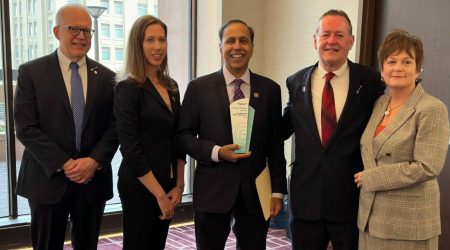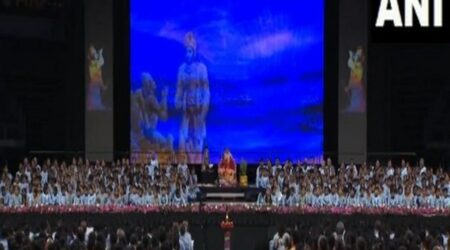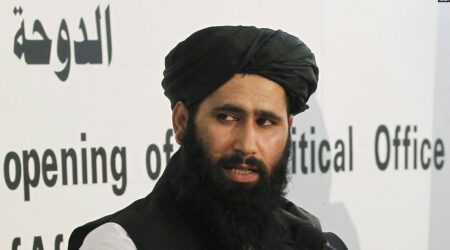Everyday Ayurveda by Bhaswati Bhattacharya
Child development experts have long documented how children can learn ANY language to which they are exposed regularly from age 3 to 8. They can develop native accents, natural flow of grammar, syntax, diction, and vocabulary, even if they genetically arise from a very different region of the world. We can see evidence in every culture of young children speaking languages of “other cultures” and children who travel frequently or have multi-cultural exposure can easily speak 4-8 languages without any confusion. This occurs in low-IQ and high-IQ verbal children. Take a person after age 10 and try to expose him/her to a new language. They will not learn as easily. High school students struggle to gain the accent of another language.
Experts also know that skills can be taught to young children very quickly. Music is commonly taught to children as soon as they gravitate toward a particular tone or rhythm of sound. Fascination with building or painting or sports is also encouraged. Called hobbies in English, these extracurricular elements are considered flukes or random until ten years of consistent effort might show proficiency. Some parents actively coach or bully their children to develop a talent. Others sit on the sidelines and marvel at their children’s ability.
The open window period in human life closes, however. And with it, the child left behind, neglected or not encouraged becomes mediocre. Tutors and guides, teachers and coaches are the modern-day, watered-down version of a guru. Because most of these modern-day guides are often mentally immature, undisciplined in their own lives, or un-well-rounded, they cannot take students from their place of desperation and isolated lostness to a higher plane.
Ancient wisemen of India knew these issues. They saw them repeat in waves over several generations. They knew that mediocre teachers occurred when they were not connected to their hearts and to nature, or when they had been abused while learning, mentally traumatized and unable to focus. Disconnected from their emotions, disenfranchised from their dreams, or disrespected during their childhood, these children grew up into teachers, intending the best but falling short because they themselves had not done the work of healing.
Compounded to this is the western notion that healing the heart’s sentiments, issues of emotion, and instinctive feelings that connect with the soul are irrational and all part of things that support the mind, its fear and lostness, such as religion. These have no place in the solid and logical realm of science that evolves to discover truth and an objective reality. Western thinking has evolved by separating the wild horses and dragons of the mind from the tamed thoroughbreds and bulls of culture, repression, and socialization.

Vedic schooling has been teaching children by using patterns of nature for 10,000 years, not delineating what truth is, but inspiring and describing how to discover truth by developing young minds into effective open sieves that gather information and know how to make sense of the world. This prepares them as lifelong learners.
Meanwhile, in the small villages where connection to nature is easy and plentiful, Vedic teachers quietly gather children who are curious and eager to make sense of the world. They observe and surrender to things they see but cannot deconstruct, such as the synchronic movement of a thousand geese or the huge coconut that ants can carry for a mile. Phenomena are not magic when they are not understood beyond the naked eye. Ancient Indian sciences understand patterns. Evidence is not violently denied or opposed, as science and medicine do today, labeling medicines they cannot understand as Magical Remedies.
Vedic schooling has been teaching children by using patterns of nature for 10,000 years, not delineating what truth is, but inspiring and describing how to discover truth by developing young minds into effective open sieves that gather information and know how to make sense of the world. This prepares them as lifelong learners.
Today, as so many young adults cannot read properly, cannot calculate, cannot focus their minds, cannot analyze problems critically, cannot understand mathematical patterns, cannot hand-eye coordinate, cannot prepare their own meal, and cannot engage in meaningful deep conversations, we are moving into a society in which the funding for experts and professionals is now given to the meek and unable. Without true competence, a credential has become the key to gaining the fake and false claim of ability, to get a job, to fill a seat and claim benefits for health care and loans and luxuries.…all without true competence in basic skills for that job.
Completing any task today is rewarded as an accomplishment, without honest judgment of quality or true capability. If someone points it out, s/he is a troublemaker. When incompetent people are credentialed and the standard is set low so that they can emptily fill posts that require competence, society is damaged. The Gregorian year of 2020 in the Common Era is a hallmark and testament of this phenomenon.

Dr. Bhaswati Bhattacharya
The South Asian Times Columnist Dr. Bhaswati Bhattacharya is a Fulbright Specialist 2018‐2022 in Public Health and Clinical Asst Professor of Medicine, Weill Cornell Medical College, New York. She belongs to an unbroken lineage of vedic scientists from the 13th century who use mantra, mind and mathematics with medicine to align concepts that scientists can understand. Her bestselling book Everyday Ayurveda is published by Penguin Random House. www.drbhaswati.com











